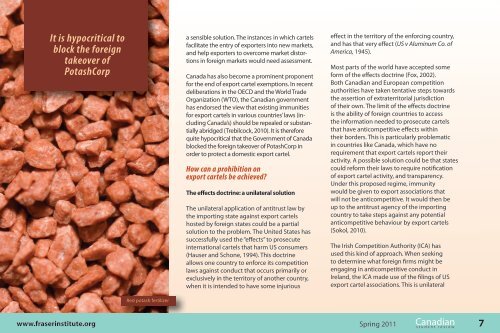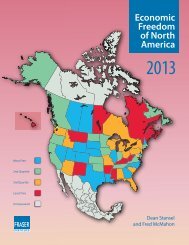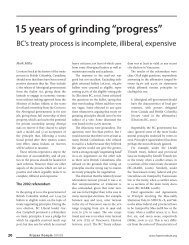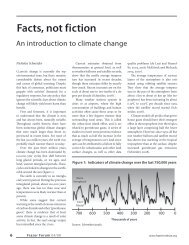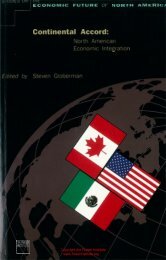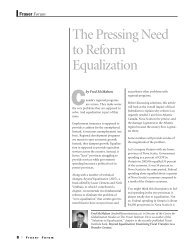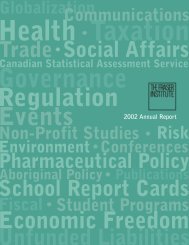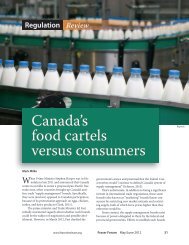The failed Potash takeover - Fraser Institute
The failed Potash takeover - Fraser Institute
The failed Potash takeover - Fraser Institute
Create successful ePaper yourself
Turn your PDF publications into a flip-book with our unique Google optimized e-Paper software.
It is hypocritical to<br />
block the foreign<br />
<strong>takeover</strong> of<br />
<strong>Potash</strong>Corp<br />
Red potash fertilizer<br />
a sensible solution. <strong>The</strong> instances in which cartels<br />
facilitate the entry of exporters into new markets,<br />
and help exporters to overcome market distortions<br />
in foreign markets would need assessment.<br />
Canada has also become a prominent proponent<br />
for the end of export cartel exemptions. In recent<br />
deliberations in the OECD and the World Trade<br />
Organization (WTO), the Canadian government<br />
has endorsed the view that existing immunities<br />
for export cartels in various countries’ laws (including<br />
Canada’s) should be repealed or substantially<br />
abridged (Trebilcock, 2010). It is therefore<br />
quite hypocritical that the Government of Canada<br />
blocked the foreign <strong>takeover</strong> of <strong>Potash</strong>Corp in<br />
order to protect a domestic export cartel.<br />
How can a prohibition on<br />
export cartels be achieved?<br />
<strong>The</strong> effects doctrine: a unilateral solution<br />
<strong>The</strong> unilateral application of antitrust law by<br />
the importing state against export cartels<br />
hosted by foreign states could be a partial<br />
solution to the problem. <strong>The</strong> United States has<br />
successfully used the “effects” to prosecute<br />
international cartels that harm US consumers<br />
(Hauser and Schone, 1994). This doctrine<br />
allows one country to enforce its competition<br />
laws against conduct that occurs primarily or<br />
exclusively in the territory of another country,<br />
when it is intended to have some injurious<br />
effect in the territory of the enforcing country,<br />
and has that very effect (US v Aluminum Co. of<br />
America, 1945).<br />
Most parts of the world have accepted some<br />
form of the effects doctrine (Fox, 2002).<br />
Both Canadian and European competition<br />
authorities have taken tentative steps towards<br />
the assertion of extraterritorial jurisdiction<br />
of their own. <strong>The</strong> limit of the effects doctrine<br />
is the ability of foreign countries to access<br />
the information needed to prosecute cartels<br />
that have anticompetitive effects within<br />
their borders. This is particularly problematic<br />
in countries like Canada, which have no<br />
requirement that export cartels report their<br />
activity. A possible solution could be that states<br />
could reform their laws to require notification<br />
of export cartel activity, and transparency.<br />
Under this proposed regime, immunity<br />
would be given to export associations that<br />
will not be anticompetitive. It would then be<br />
up to the antitrust agency of the importing<br />
country to take steps against any potential<br />
anticompetitive behaviour by export cartels<br />
(Sokol, 2010).<br />
<strong>The</strong> Irish Competition Authority (ICA) has<br />
used this kind of approach. When seeking<br />
to determine what foreign firms might be<br />
engaging in anticompetitive conduct in<br />
Ireland, the ICA made use of the filings of US<br />
export cartel associations. This is unilateral<br />
www.fraserinstitute.org<br />
Spring 2011 Canadian<br />
s t u d e n t r e v i e w<br />
37


